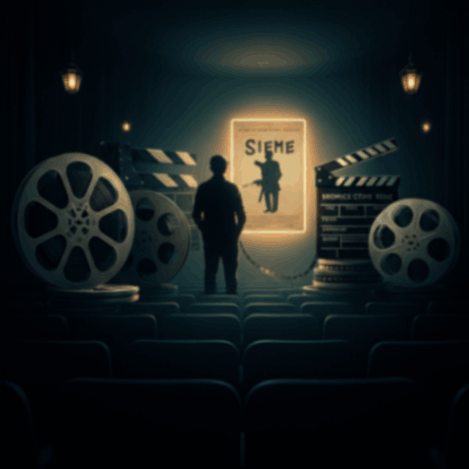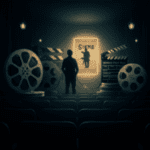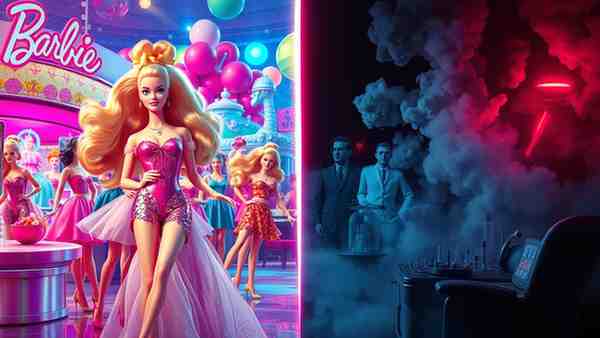
Mysterious Directors: Films Made by Directors with Only One Movie
Some directors leave behind a portfolio of films for cinephiles to endlessly analyze, debate, and admire. Others, however, create a single masterpiece—or, in some cases, a notorious flop—and then disappear from the world of filmmaking entirely. These enigmatic figures stir up a unique fascination among film buffs, indie film enthusiasts, and aspiring filmmakers. Why make just one movie? Was it artistic perfection, a fear of failure, or industry challenges that kept them from returning to the director’s chair?

This blog takes a look at some directors who have made only one feature film. Their work continues to intrigue and inspire audiences, even if their filmmaking careers have not spanned multiple projects.
The Allure of the “One-Film Director”
There’s something inherently mysterious about a one-film director. They’ve created something that holds its own in a world filled with prolific filmmakers, yet they leave audiences wondering what might have been. Did they intend to walk away after one film, or were circumstances beyond their control? These directors and their singular works often achieve cult status, with their names whispered reverently by avid fans of cinema.
While some succeeded with grace, others faced issues like creative differences, financial troubles, or even personal crises that prevented a second attempt. Regardless, their contribution to cinema feels frozen in time, perfect (or flawed) as it is.
What Defines a One-Film Director?
A one-film director has helmed a single feature-length film that has gained some level of recognition, even if it’s obscure. These directors sometimes work in other parts of the entertainment industry—editing, screenwriting, or producing—but have chosen to leave directing behind after their debut.
Now, let’s take a close look at some of these mysterious filmmakers and how their solitary films have impacted cinema.
Directors Who Made Only One Movie
1. Charles Laughton – The Night of the Hunter (1955)
Few directors leave behind a masterpiece, but Charles Laughton’s first—and only—film, The Night of the Hunter, is nothing short of a cinematic triumph. This Southern Gothic thriller follows a sinister preacher (played chillingly by Robert Mitchum) who terrorizes two children in his quest for stolen money.
With its expressionistic visuals, eerie atmosphere, and haunting performances, The Night of the Hunter is widely regarded as one of the best films of all time. Despite the acclaim it receives today, the film was a critical and commercial disappointment when it first premiered. The poor reception reportedly disheartened Laughton, who never directed again.
Ironically, his only movie has since inspired countless filmmakers, including the Coen Brothers and Guillermo del Toro.
2. Barbara Loden – Wanda (1970)
A trailblazer in independent filmmaking, Barbara Loden’s Wanda is a stunning example of minimalist storytelling. Written, directed by, and starring Loden herself, the film follows a disaffected woman in Pennsylvania coal country who drifts through life, eventually becoming entangled in a toxic, criminal relationship.
Loden’s raw and deeply personal portrayal of Wanda shocked audiences with its unvarnished realism and emotional depth. Praised as a feminist masterpiece, Wanda received critical acclaim but didn’t reach mainstream audiences during its release.
Sadly, Barbara Loden’s premature death from cancer at age 48 ensured that Wanda would remain her only film. Nevertheless, it remains a significant landmark in feminist cinema and independent filmmaking.
3. Leonard Kastle – The Honeymoon Killers (1970)
Sometimes, a director’s only venture into film is born out of necessity rather than passion. Leonard Kastle, a composer by trade, took over the reins of The Honeymoon Killers after its original director, Martin Scorsese, was fired early in production. Kastle rewrote the script and directed the film, creating a gritty and shocking true-crime story about a murderous couple.
The film’s raw aesthetic and unpolished charm struck a chord with audiences, earning it a spot as a cult classic. While praised for his work, Kastle never directed another film, claiming he found the process too emotionally exhausting.
4. Saul Dibb – Bullet Boy (2004)
Saul Dibb is another name on the list of directors who briefly explored the director’s chair. His film Bullet Boy, set in London’s inner city, is a poignant and gripping look at gun violence and its repercussions.
While the film garnered praise for its realism, strong performances, and social commentary, Dibb shifted his focus to television projects after Bullet Boy, leaving audiences to wonder what might have come next in his career.
5. Fellipe Barbosa – Casa Grande (2014)
This Brazilian filmmaker crafted a biting satirical drama with his debut, Casa Grande, exploring the themes of privilege, race, and social inequality within Rio de Janeiro. The movie follows a wealthy teenager whose family’s economic crisis forces him to confront the stark realities of Brazil’s socio-political landscape.
Though critically acclaimed and featured in film festivals worldwide, Barbosa has yet to make a follow-up project as director, shifting instead to writing and producing.
Why Do One-Film Directors Fascinate Us?
Directors with short-lived careers are like shooting stars in the cinematic universe—brief but unforgettable. Here are some reasons they hold a special place in the hearts of film buffs and indie aficionados alike:
- Mystique and Exclusivity: With only one work to their name, these directors often leave behind an aura of mystery that invites speculation about their creative process and potential “what-ifs.”
- Cult Appeal: Their single films often cater to niche audiences, developing dedicated fan bases that eagerly preserve and promote their legacies.
- Creative Purity: With no other works to dilute their vision, their solo films are often seen as pure expressions of their artistic voice.
What Aspiring Filmmakers Can Learn from Them
For aspiring directors, one-film wonders are a double-edged sword. On one hand, their solitary works are proof that a single movie can cement a legacy. But on the other, they remind us of the volatile nature of the film industry—where critical acclaim and commercial success don’t always align.
Some key takeaways include:
- Passion Over Profit: Many of these directors created deeply personal and unique works, unencumbered by mainstream trends.
- The Importance of Resilience: Success may not come instantly; a rocky beginning can discourage even the most talented creators.
- Leave a Mark: Whether or not you plan on making more films, strive to create something meaningful enough to resonate with audiences.
Final Takeaway
Directors who have made just one movie remind us that filmmaking is about creating something that inspires, challenges, and moves its audience. Whether it’s the haunting visuals of The Night of the Hunter or the raw intimacy of Wanda, these singular works prove that a lasting legacy can be achieved with just one film.
Curious about another lesser-known gem? Leave a comment and share your own favorite picks for one-film directors that have stayed with you long after the credits rolled!

